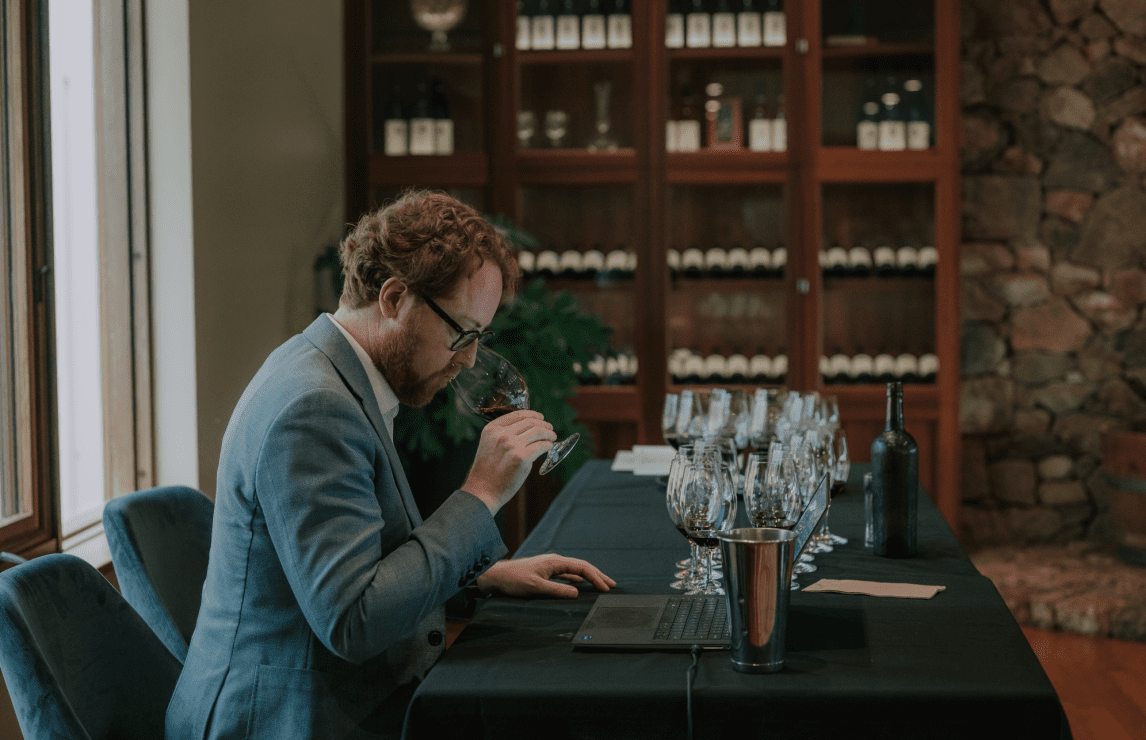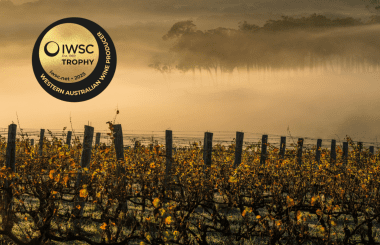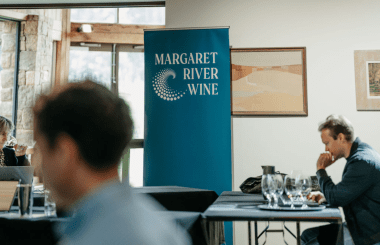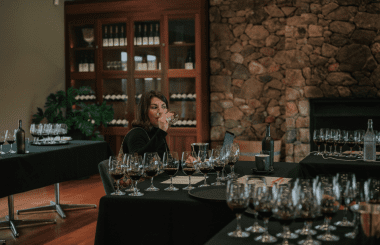IWSC Judges: Margaret River proves itself as a top-tier wine region
The IWSC recently headed to Western Australia for its second Wine Judging in Margaret River, in partnership with Margaret River Wine Association and Wines of Western Australia. Following the judging, our international experts sat down to discuss the potential of Western Australian wines and their future on the global stage.
Margaret River once again proved its unofficial title as the boutique wine region of Australia, with its wines showing restraint, finesse and a strong sense of place. This is particularly remarkable given how young the wine region is, our judges noted.
“We’ve come to the region at quite a poignant moment in history. Less than 2 weeks ago, Dr John Gladstones, the man who first suggested that this would be a good place to plant vines, passed away. That gives us a chance to reflect on how young the region is really, yet in one human lifespan, it attained a reputation that is very considerable worldwide. And also to reflect on where it might go in the next human lifespan as the region develops,” said Alex Hunt MW, Purchasing Director at Berkmann Wine Cellars and the IWSC Wine Judging Committee member who oversaw the judging.
Margaret River’s hallmark varieties, Chardonnay and Cabernet Sauvignon, remain the undisputed king and queen of the region’s winemaking, said the judges, adding that the question is what could be done further, to make sure the wines remain fascinating and relevant on the global stage.
Speaking of Chardonnay, Alex Hunt MW emphasized that it’s important not to restrict the natural aptitude of this grape.
“Some wineries are trying to resist and control that aptitude, and that’s something you need to be careful with. After all, Chardonnay is a grape that can express a wealth of vineyard information and textural beauty in the right hands. And the prevailing tendency here is to block the malolactic, sulfur early and bottle within a year. I just wonder if it’s capping Chardonnay's potential.And I wonder what would be the results of Chardonnays that are allowed to mature longer on lees, a bit of malo, maybe some in barrels. It’d be exciting and would take the wine to another level,” shared Alex Hunt MW.
As for Cabernet, the best of Margaret River examples have a wonderful “purity and structure, but with fruit at the core,” said the judges adding that paying the closest attention to the quality of oak barrels is key. “We tasted a handful of examples that didn’t come from the best barrels. And these are such lovely fruit, but sadly the oak is just second grade and that’s not good enough,” said Alex Hunt MW.
Another thing that became apparent to the judges from the tasting, as well as from their discussions with winemakers, is “the bravery to blend below the 85% level”. Our experts felt that using higher proportions of other grape varieties, such as Cabernet Franc or Malbec, in Cabernet-dominant blends can bring out a whole new dimension in the wine.
“There’s a perception, and it’s a myth, that blends are inferior – but we’ve been buying Bordeaux for like 1,000 years! That was something I was surprised about and I would love to feed that back to winemakers,” said Clara Rubin, IWSC Judge and Head of Wine at Hawksmoor restaurants.
Speaking of the other grape varieties, our judges were surprised to see high-quality Touriga wines, which suggests that Mediterranean grapes can thrive in local terroirs. Another grape the judges mentioned was Chenin Blanc. “We’ve seen some good examples of Chenin. Some oaked styles, some fresher, leaner, and that kind of experimentation is very important so that diversity of wines can be fully exploited,” said Alex Hunt MW.
During the IWSC Wine Judging in Margaret River our international judges worked side by side with the local, Australian experts. The international judges described this experience as "fantastic and enriching", noting that there was “plenty of debate”, which helped came to the right conclusions.
Our experts added that the IWSC Global Judging events offer a rewarding experience for both the judges and the wine producers.
“What we look to do when we judge away is to find out whether what we know sets up at the ‘cellar door’ if you like. For judges, it’s a rewarding conversation to be had with the winemaker who’s not in the room; because what they are looking for, the winemakers, instead of having something that they refer to as ‘cellar palates’, when they are in their little bubble, is to see if that steps up to a global context. And we found that (in Western Australia) it really does,” shared judge Clara Rubin.
When commenting on the medals awarded, the judges highlighted the highly rigorous standards of the competition, noting that any IWSC medal, be it bronze, silver or gold is a significant achievement.
“There are some competitions that have a reputation for giving away a lot of medals, almost giving away a medal for turning up. And this is not one of those competitions. For us, even to award a bronze medal does imply a certain high standard. These are not just wines that are free of technical faults, these are wines with positive aesthetic merit, that we think people would enjoy drinking. That’s the baseline, that is bronze right there. And when you get to silver, the quality has to be remarkably different to differentiate itself, we are talking of wines of texture and dimensions, and storytelling and originality. So silver is a very high bar. We came away with a lot of silvers this year and these are all wines to be admired. And then of course there’s the gold level and that represents the pinnacle,” shared Alex Hunt MW.
Speaking of the opportunities for Margaret River and the rest of Western Australian wines in the UK market, our judges noted that “there’s always room for something exceptional”.
The best wines tasted in Margaret River were “well-defined, medium-bodied, structured, fairly fresh in style, and that applies to both Chardonnay and Cabernet, as well as many other varieties, and it also applies to the rest of Western Australia. And it’s just what we are looking for in the UK at the moment. There’s a natural constraint and finesse that can be found in the wines here. People will enjoy it, they just need to discover it,” said Alex Hunt MW.
Clara Rubin agrees: “Speaking to the winemakers this week, they are quite relieved and excited not having to create these big commercial styles. So that’s really encouraging. The wine that is a bit understated, has a bit of finesse – that’s what we want.That’s the opportunity. We don’t want to see commercial styles. We don’t want to see big heavy-handed winemaking. We want to see the restraint and we want to see real finesse.”
Best Western Australian Wines 2024






